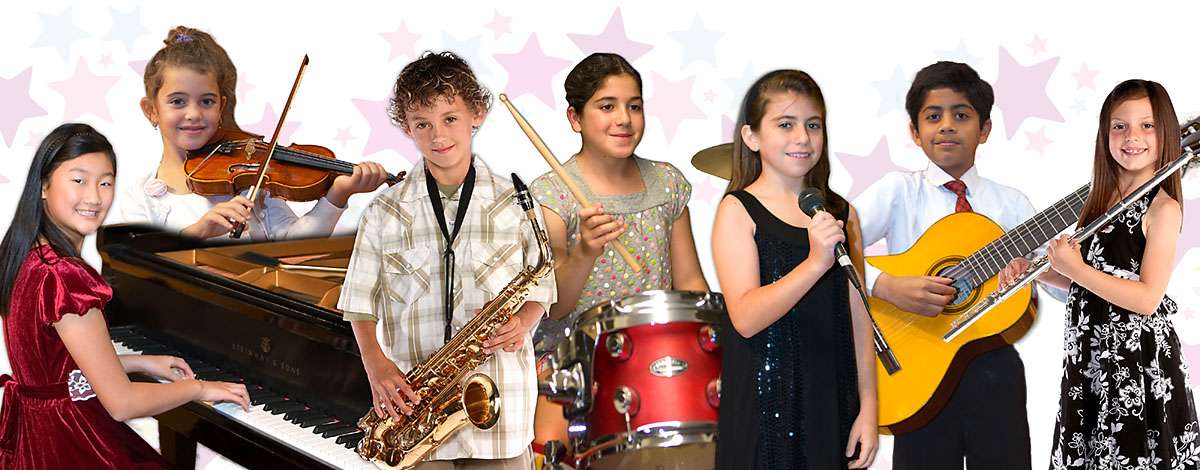MUSIC CLASSES

“Music is a moral law. It gives soul to the universe, wings to the mind, flight to the imagination, and charm gaiety to life and to everything”
Music is an art form and cultural activity whose medium is sound and silence. The common elements of music are pitch (which governs melody and harmony), rhythm (and its associated concepts tempo, meter, and articulation), dynamics (loudness and softness), and the sonic qualities of timbre and texture (which are sometimes termed the "color" of a musical sound). Different styles or types of music may emphasize, de-emphasize or omit some of these elements. Music is performed with a vast range ofinstruments and with vocal techniques ranging from singing to rapping, and there are solely instrumental pieces, solely vocal pieces(such as songs without instrumental accompaniment) and pieces that combine singing and instruments.
Music is a form of entertainment that puts sounds together in a way that people like or find interesting. Most music includes peoplesinging with their voices or playing musical instruments, such as the piano, guitar, or drums
Music education is so important because:
- Musical training helps develop language and reasoning
- A mastery of memorization
- Students learn to improve their work
- Increased coordination.
- A sense of achievement
- Kids stay engaged in school
- Success in society
- Emotional development
- Students learn pattern recognition
- Fine-tuned auditory skills
- Music builds imagination and intellectual curiosity
- Music can be relaxing
- Musical instruments can teach discipline
- Preparation for the creative economy
- Development in creative thinking
- Music can develop spatial intelligence
- Kids can learn teamwork
- Responsible risk-taking
- Better self-confidence
